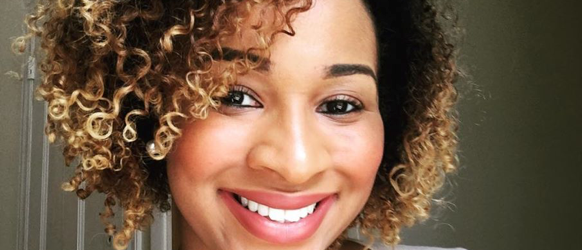Tiffany Jordan graduated from CIPA in May of 2016 with a concentration in Human Rights and Social Justice. She currently works for Congresswoman Niki Tsongas (D-MA) as a Legislative Fellow and Press Assistant on Capitol Hill.
Why CIPA? There are a lot of MPA programs around—what made you choose CIPA over other programs you were considering?
I chose CIPA because it allowed me to create my own program of study based on the area of policy I was interested in. Although each concentration comes with suggested classes, CIPA students are not restricted to only those classes. My interests span from incarceration rates of minority males to the disenfranchisement of poverty stricken communities, and CIPA allowed me to take classes on these topics. I love the flexibility of this program and, most importantly, that CIPA is staffed with people who are also committed to social justice issues. The program encourages students in all of their endeavors to make the world a better place.
What are your long-term career goals? How did CIPA help prepare you for these?
Long-term I hope to continue working–through activism and policy work–to alleviate poverty in low-income areas in this country. In particular, I want to focus on education policy. CIPA prepared me for work in this arena through the variety of courses that I was able to take in education policy, microeconomics, and social justice.
What would you tell a prospective student who asked you to list the top three reasons that CIPA was a good fit for you?
I would say the top 3 reasons why CIPA was the perfect fit for me was because:
- I was able to create my own program of study based on my interests.
- CIPA offers an externship program that allowed me to go to Washington, DC, where I was able to pursue real-life work experience, while simultaneously enrolled in classes. This allowed me to stay on track to complete my degree without a delay.
- Unlike other MPA programs with compressed one-year degrees, CIPA is a two-year program. I never felt rushed and was able to take classes based on my career interests. I also was able to do internships and externships. These are things I attribute to helping me acquire my current position on Capitol Hill.
Are there any particular “stand out” experiences at CIPA that made a lasting impact on you?
My most stand out experience was during my externship at the White House during the Fall semester of 2015. I worked on the education policy team and gained experience in a variety of education ventures, from universal healthcare to Second Chance Pell grants. I am confident that these experiences will help me in my upcoming role and further down the line in my career.
How would you describe the sense of community you find at CIPA? How did that figure into your experience of the last two years? How do you see it figuring into your future experiences?
One of the things I will always remember about CIPA is that, although my classmates came from all over the world, we were one family. CIPA is one of the most open-minded programs on Cornell’s campus. From the office staff to the professors, CIPA students are comfortable talking and laughing with them, and bringing issues of concern to them. My fondest memories of CIPA are sitting in the lounge, sometimes until late at night working alongside my classmates, realizing that all of us were working to make this world a better place.

